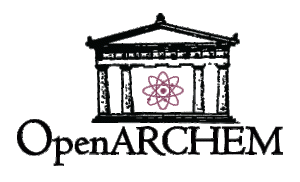OpenARCHEM is a repository, a resource, and a publication outlet for ancient organics.
Across the ancient world, organic goods were ubiquitous and pervasive but are now largely lost to time. Humanities has partnered with neuroscience and psychology to examine sense and experience in antiquity, however, sound and sight have been privileged in the “Sensual Revolution” because our ability to access and characterize these ancient goods has been so very limited. Recent developments in the archaeological sciences (e.g. field-based organic residue analysis) now finally allow us to reconnect the containers with their contents – recreating ancient recipes, scentscapes, economies, and socio-cultural practices – in order to recover lost ancient technology and innovation to better understand the past and navigate the present.
A Repository
OpenARCHEM is a searchable open-access repository of organic data. We are presently constructing the OpenARCHEM database to house information from thousands of archaeological samples sourced from the ARCHEM project and similar initiatives in combination with related ethnohistory, ethnobotany, etc. Organic residue samples will be published in the database, in records that will include chromatograms with constituent compounds using both scientific and lay terminology, all in searchable fields. These will, we hope, be only the first step in building a broader organic residue analysis (ORA) data set from projects of all types, and we are soliciting submissions now.
In our database, each entry doesn’t occur in isolation – as they so often do in scientific journals or site report chapters – but is specifically connected to its object, archaeological context, and relevant ethnobotanical or ethnohistorical records. For organic residues derived from ceramics, for example, this means drawings, images, and 3D models of the vessel type (also a searchable field) and petrographic data where available, along with site and contextual information. One of the key features of the OpenARCHEM repository will also be to note the condition of the artifact and the resulting quality of the sample (see Sample Quality Rankings).
A database is, however, only as good as its network of contributors. We – as transdisciplinary scholars trained in archaeology, ancient literature, and the sciences – are building a network of archaeologists, scientists, historians, etc. to help us refine the original database design and crowd-source data to maximize its usability and impact across specialties. Have an idea for the database? Have a processed sample you’d like to publish? Contact us.
A Resource
OpenARCHEM is a resource for sharing and comparing archaeometric data, geared for specialists and non-specialists alike. Archaeometric data tends either to be underpublished (delayed by site report publication) or appears only in specialized venues often overlooked by non-specialists. By creating a venue for easy search and comparison, the OpenARCHEM project hopes to raise the profile and utility of the archaeological sciences.
OpenARCHEM will also be a methodological resource, providing a repository for protocol-sharing and reference samples. Archaeological data is notoriously problematic, as the condition of artifacts – and the resulting samples – can be highly variable. Different materials also require different analytical approaches. OpenARCHEM welcomes the submission of extraction and analytical protocols along with ethnographic and standard reference samples, which will be published on a separate page of the database site.
A Publication Outlet
OpenARCHEM will be an outlet for online publication. Each entry will constitute a publication with DOI, and publication credits will get indexed in Google Scholar searches. Our goal is to encourage and facilitate publication through the database in a way that does not compete with traditional outlets.



